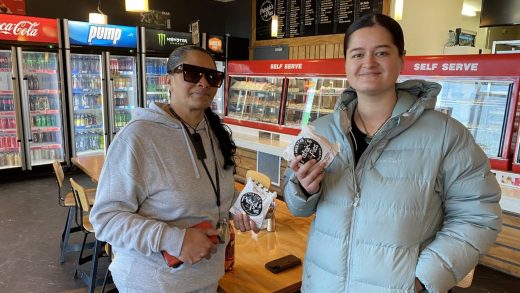
It is going to take a “disaster” or serious incident before security guards are given powers they need to protect retailers, an industry body says.
This comes as retailers around Christchurch’s Bus Interchange and Westfield Riccarton mall, as well as dairy, vape and liquor store owners say youth crime is an ongoing issue, with children aged between 10 and 16 being physically and verbally abusive, stealing, and generally causing mayhem.
Security guards are currently only allowed to defend themselves, a law that young offenders are taking advantage of every day, New Zealand Security Association chief executive Gary Morrison said.
Last month security guard Luke Tahu said he had been threatened with being stabbed by four people in the past six months, and that he received daily death threats in his job at New World on Ferry Rd, forcing him to wear body armour and a camera.
READ MORE:
* Auckland store owner sleeps in his shop, glued to CCTV, after five attacks
* Security guards powerless in Kmart fracas, association pushes for ability to detain offenders
* Auckland dairy stabbing: Man accused of being ‘lookout’ during robbery found guilty
Young offenders in Christchurch are becoming more brazen, with alleged crimes by children in the city at their highest in almost a decade.
On Monday, a 14-year-old facing 81 charges for allegedly cutting off his bracelet and embarking on a week-long crime spree was scolded by a Youth Court judge.
Effectively, security guards have no powers in the retail sector, Morrison said.
“They don’t have the power of arrest as they are there as normal citizens. What they have is the ability to defend themselves with reasonable force.”
A citizen’s arrest was an option, but depended on the situation and particularly the danger to themselves, and to others in that store, and each store could have differing policies, Morrison said.
In the case of young offenders, they are reminded to take additional care and be mindful of age.
Last month, a Westfield Riccarton mall security guard reportedly suffered concussion after being “punched in the head, abused and beaten”.
Morrison said he would like more power and abilities for security guards, but that would need to be linked with licensing and training.
Supplied
Effectively, security guards have no powers in the retail sector, New Zealand Security Association chief executive Gary Morrison says. (File photo).
“The increased power would be around detaining people when necessary, not a citizen’s arrest but along those lines, until police can take it further.”
Lobbying with the Government to amend laws for security guards had been a “long, slow process”.
“Until we have a disaster, there is no prompt for change. It’ll take a serious incident before that happens,” Morrison said.
“It’s frustrating. At the moment, we have no power at all. We can’t do anything.
Peter Meecham/Stuff
Retailers are at their wits’ end dealing with threats and shoplifting, and say laws need to change to address the problem.
“Offenders know that and are taking advantage of it.”
Some offending was being driven by social media sites like TikTok, Instagram and Snapchat, where posts showing threatening behaviour, car theft, and stealing were being shared.
Another retailer said stopping thieves was almost impossible: “If you try and grab them it’s assault.”
Last month, a group of teens “abused and assaulted” Rebecca Brewer’s 13-year-old son at the city’s Bus Interchange.
They took his cap, shoes and bag, then “threw him in the river”, leaving him with chipped teeth and a fat lip from the assault, she said.
When a group of teens at the Bus Interchange were asked why they congregated there, they said the groups who called themselves “hoodrats” went there “looking for trouble”.
Child psychologist Kirsty Ross said thrill-seeking children were often too young to understand the consequences of crime.


